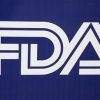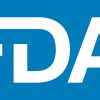Man, does Dr. D love having Internet access on airplanes. During a recent flight from Dallas to San Jose, the doctor was able to find time to traverse FDA’s enforcement page and came upon a fairly long and terse warning letter issued to a device establishment in Northern California. In fact, there were 15 observations noted in one warning letter – making it one of the most substantial letters the doctor has read in some time. Now Dr. D is not going to debate the merits of such a warning letter, especially where a device establishment is literally roasted by the agency. However, one observation, Training, the doctor finds particularly disturbing.
Folks, training is one of those fundamental requirements that influences all aspects of the Quality Management System (QMS). That being said, the doctor will expand upon the virtues associated with establishing an effective training program for this week’s guidance. For those frequent readers of Devine Guidance, please remember that Dr. D receives no “pecuniary” (look-it-up) compensation for his weekly tirades. The doctor’s writing is driven by a labor of love and to teach readers about the need for complying with quality, regulatory, and statutory requirements, while gaining a loyal customer and fan base. Enjoy.
Warning Letter
As stated in the intro of this week’s guidance, receiving a warning that contains 15 Form 483 observations is quite a feat; however, it is by no means a record. Since you or the doctor was not in attendance at this inspection, what is lost in translation is the interaction between the FDA investigator and the staff of the offending establishment. One thing is for sure though; this inspection did not go well. In fact, premised on the outcome documented in the warning letter, the inspection did not go well indeed.
Warning Letter excerpt – 20 September 2013
Failure to establish procedures for identifying training needs and ensure that all personnel are trained to adequately perform their assigned responsibilities, as required by 21 CFR 820.25(b). For example, your firm’s Risk Management procedure, SOP-0017 Version 4.0, states, “Persons performing risk management tasks shall have the knowledge and experience appropriate to the tasks assigned to them. Records of Qualifications shall be retained in the employee’s Training File per SOP-0004, Training.” During the inspection, the FDA investigator requested training documents for (b)(4) individuals who were involved in the risk analysis process. Your firm could not provide any training documentation for one of the individuals and provided a certificate titled, “FDA QSR/GMP & Inspections 2009” and associated test records for the second individual. Review of these documents revealed that they did not address risk analysis techniques.
We have reviewed your response and have concluded that it is inadequate. Your firm updated its Risk Management procedure, SOP-0017, to Version 5.0, which now states, “Persons performing risk management tasks shall have the knowledge and experience appropriate to the tasks assigned to them. Persons should have knowledge of ISO 14971. Records of Qualifications shall be retained in the employee’s Training File per SOP-0004, Training.” However, your firm did not provide evidence demonstrating that it has planned, initiated or completed training of appropriate personnel to ISO-14971. Finally, your firm did not provide evidence demonstrating that personnel responsible for determining employee training needs were trained on the additional training requirement stated in the updated SOP-0017, Version 5.0.
Subpart B – Quality System Requirements
Sec. 820.25 Personnel
(a) General. Each manufacturer shall have sufficient personnel with the necessary education, background, training, and experience to assure that all activities required by this part are correctly performed.
(b) Training. Each manufacturer shall establish procedures for identifying training needs and ensure that all personnel are trained to adequately perform their assigned responsibilities. Training shall be documented.
- As part of their training, personnel shall be made aware of device defects which may occur from the improper performance of their specific jobs.
- Personnel who perform verification and validation activities shall be made aware of defects and errors that may be encountered as part of their job functions.
Training – Basic Requirements
For starters, §820.25 requires that “sufficient personnel with the necessary education, background, training, and experience” are available to support the operations of a medical device establishment. In short, it becomes a nearly “insurmountable” (look-it-up) task to train individuals that lack appropriate education, background, and experience to work in the medical device industry. For example, if the device establishment needs auditors, internal or supplier, good luck with hiring short-order cooks to fill the role. In fact, ISO 9001:2008, ISO 13485:2003, and ISO 13485:2012 are pretty explicit when dictating that auditors need to meet ISO 19011 requirements. That being said, a device establishment’s best policy should be to only hire intelligent individuals with appropriate levels of education, background, training, and experience. However, please keep in mind individuals from other highly regulated industries such as pharmaceutical or aerospace and defense make fine candidates as well.
Training Program
Dr. D will start this paragraph off with a broken-record comment; “You need to have a well-written procedure that clearly delineates the requirements for the training program!” All employees, from the janitor to the Chief Jailable Officer (CJO) must be appropriately trained to execute their duties. For example, every-single member of an organization should receive training to the QMS, Quality Policy, and Quality Objectives. This training needs to be documented. Why? Because if an event or activity is not documented in writing, in the eyes of FDA, it never occurred.
Additionally, the QSR is very clear in regards to: (a) ensuring personnel are made aware of device defects; (b) personnel tasked with executing verification and validation issues are made aware of defects and errors associated with executing their job function. For operators and inspectors, it is imperative that their training occur in the manufacturing environment. Supervisors and trainers must take responsibility for their direct reports and ensure their personnel are adequately trained and the training documented, in writing! In some instances, some level of comprehension will be required by operators and inspectors, so tests premised on practical application of job skills, after training, is probably a good idea to pursue. For exempt employees, self-training is always a viable option, providing the training is documented, in writing!
Furthermore, training of contractors and consultants is also a salient requirement. For example, if you decide to hire Dr. D or a member of my staff to perform internal audits, Dr. D and members of his team must be trained to your procedures, as applicable. Training to your SOPs for Internal Audits, Gowning, and other relevant procedures will be required and evidence of the training documented, in writing!
Finally, when FDA knocks on the front door for a cup of coffee and an inspection, do not forget that FDA requires training too! The investigator will need to be trained in minor little things like gowning to enter the cleanroom and appropriate safety procedures such as the need to wear protective eye wear. Guess what? This training must be documented, in writing!
Takeaways
For this week’s guidance the doctor will leave the readers with four takeaways. One – medical device establishments must have a well-written procedure that delineates all of the fundamental requirements for a training program. Two – being able to successfully train individuals begins with the hiring of individuals that possess “the necessary education, background, training, and experience.” Three – remember consultants, contractors and FDA investigators require some level of training to work in a medical device establishment. Four – all training must be documented, in writing!
In closing, thank you again for joining Dr. D and I hope you find value in the guidance provided. Until the next installment of DG – cheers from Dr. D. and best wishes for continued professional success.
References:
- Code of Federal Regulation. (2013, April). Title 21 Part 820: Quality system regulation. Washington, D.C.: U. S. Government Printing Office.
- Devine, C. (2011). Devine guidance for complying with the FDA’s quality system regulation – 21 CFR, Part 820. Charleston, SC: Amazon.
- FDA – U.S. Food and Drug Administration Website. (2013, June). Warning letters. Retrieved October 12, 2013, from http://www.fda.gov/ICECI/EnforcementActions/WarningLetters/2013/ucm369495.htm.






